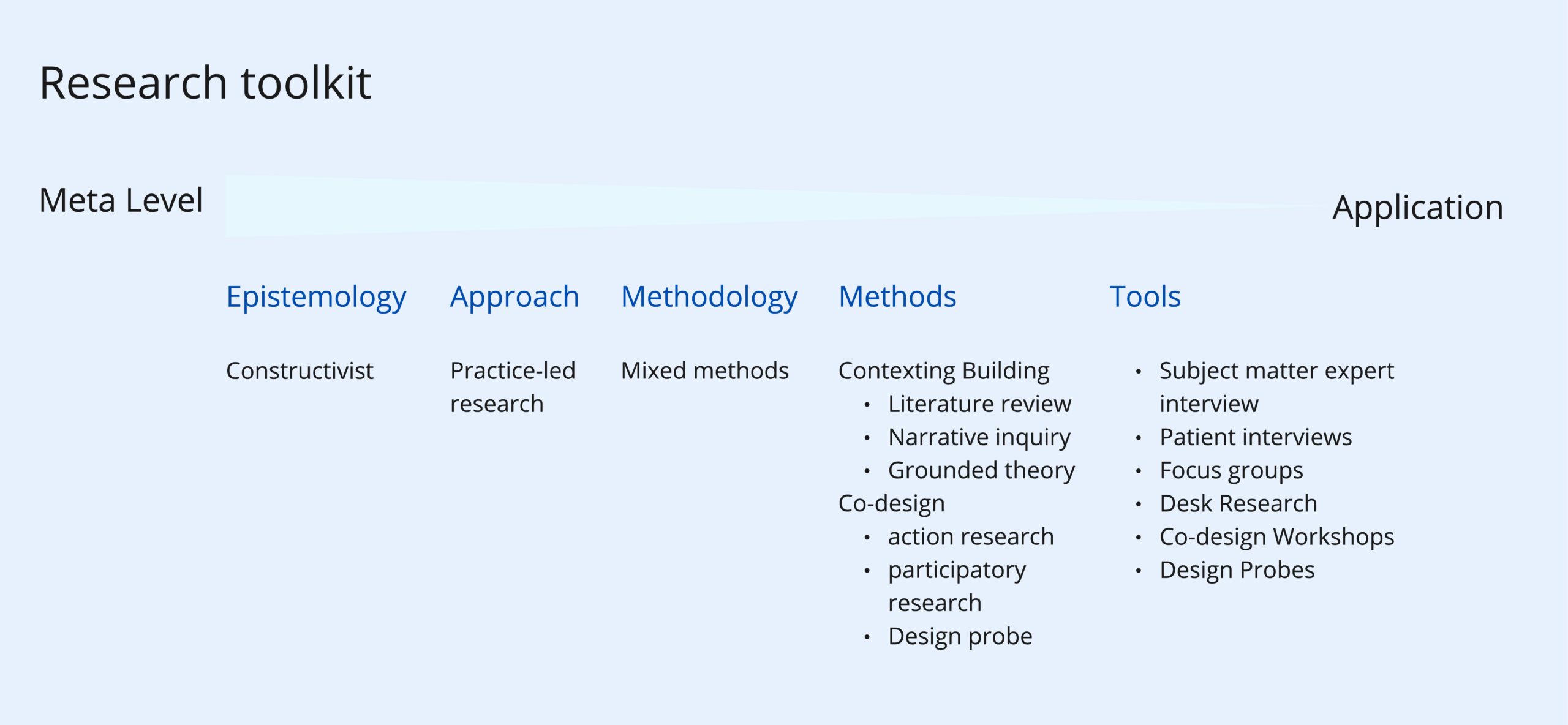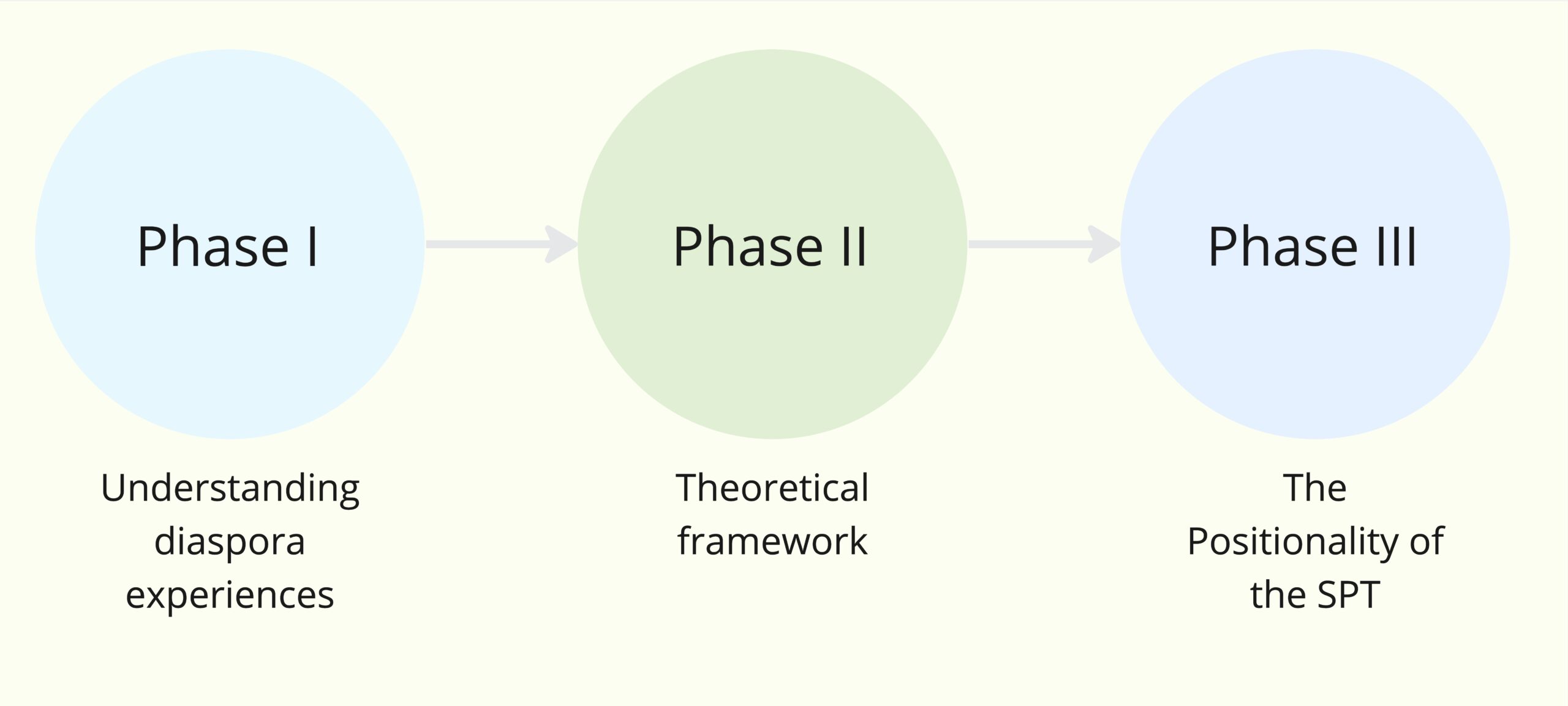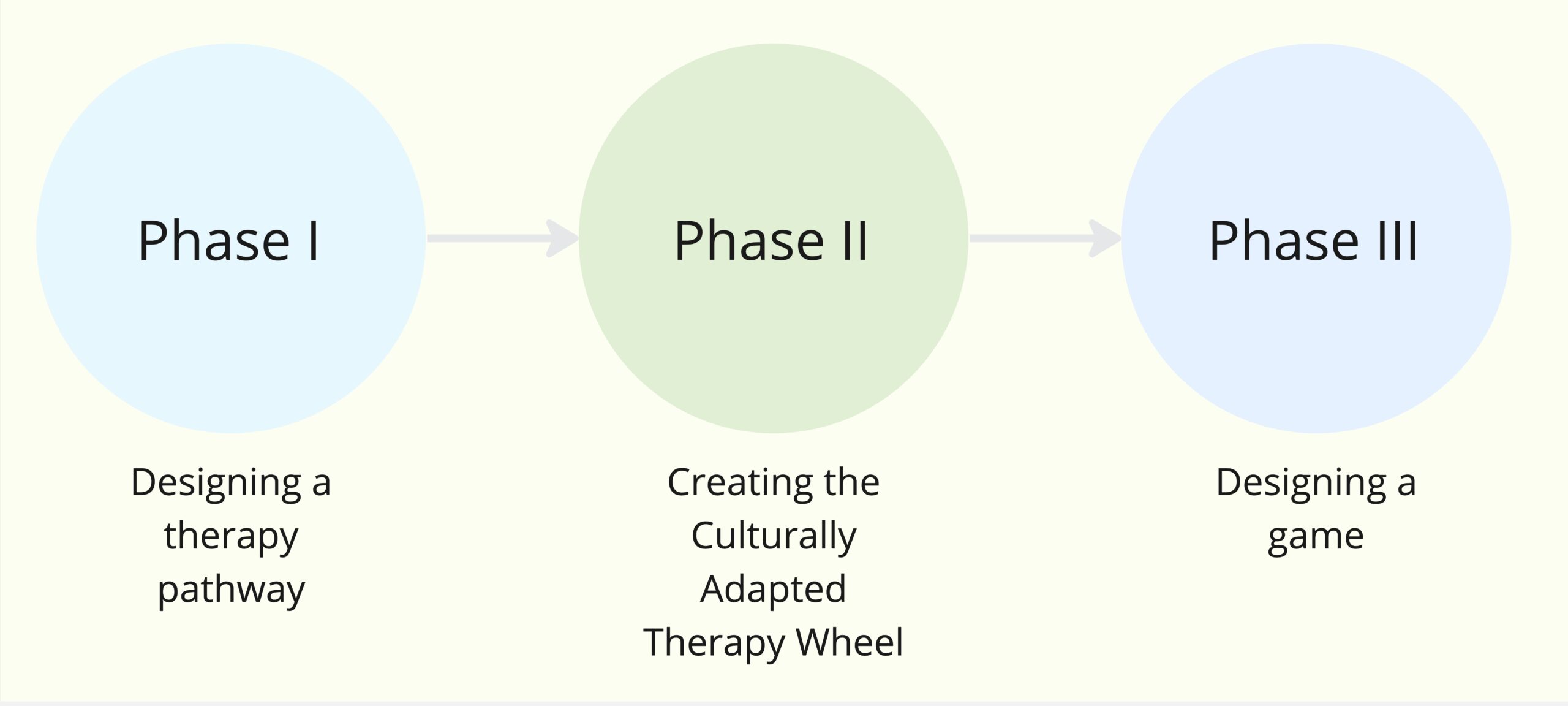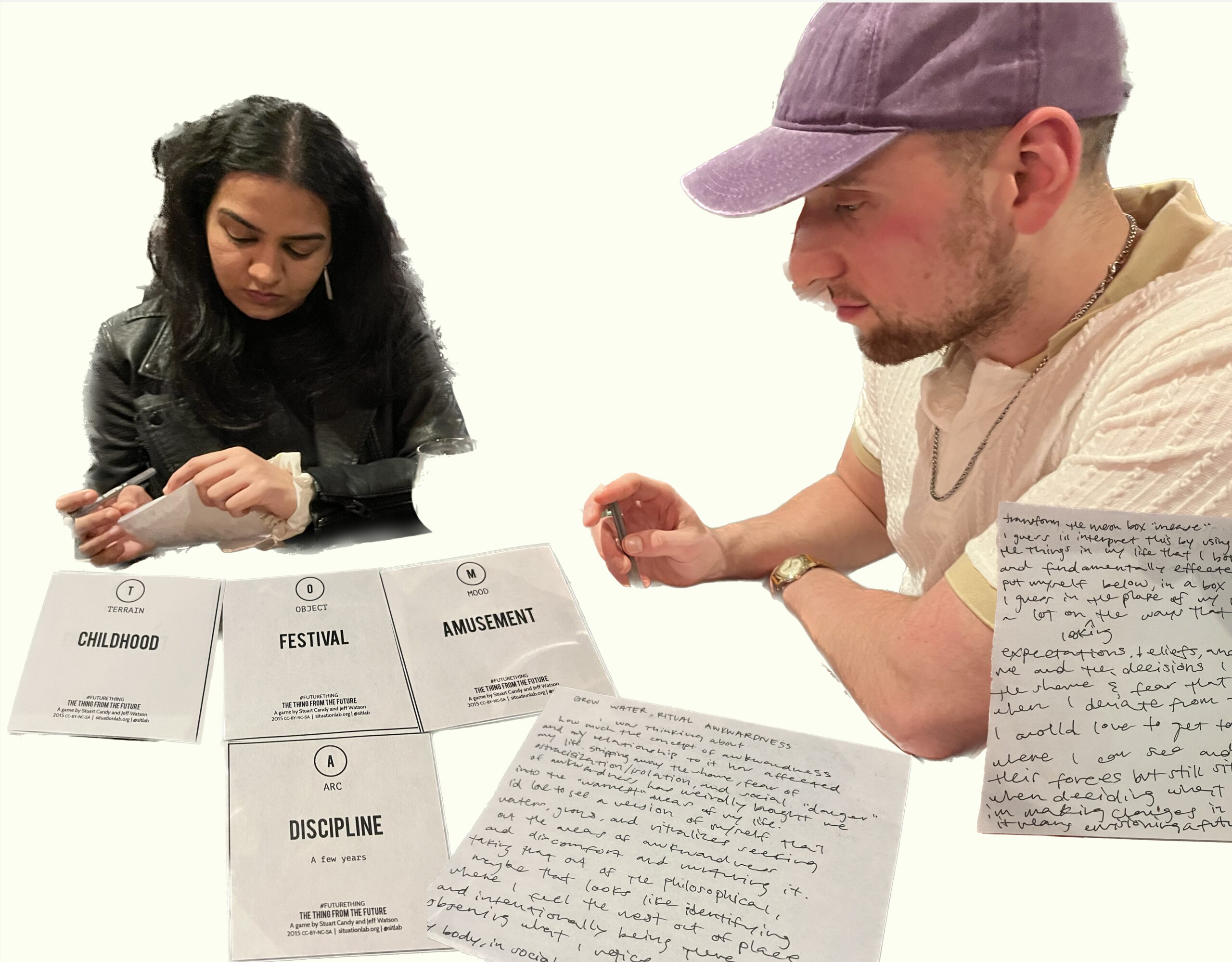Creating a Culturally Adapted Psychotherapy Toolkit
How can storytelling and imagery enrich the depths, range, and nuances of mindfulness-based psychotherapy experiences for the international diaspora community?

WHAT'D I DO?
Dissertation Research, Game Design
WHEN WAS THIS?
Research: November 2022 - May 2023
Game design: June 2023 - Present
WHAT'D I WORK IN?
Figma, Miro, Unity, Adobe Suite (PS, AI, AE), Stop Motion; lots of sketching on paper, watercolor, and gouache.
WHO'D I WORK WITH?
Dr. Abdulla Alhilali, Psychiatrist at Charité Mitte Hospital Berlin, Neurology department; Dr. Jennifer Bayer, Psychotherapist at A Rooted Life Psychotherapy, WA; Pip Batey, design researcher at Helix Center at Imperial College London hospitals, London; Professor Ashley Hall, Professor of Design Innovation, Royal College of Art, London; Ms. Anna Wojdecka, Course Tutor, Royal College of Art.
I am building a culturally adapted psychotherapy experience in the form of a narrative expressive mobile game, built in Unity and guided by the psychiatrist supervisor of my MRes dissertation research at Imperial College London x Royal College of Art.
The research methodology combines various methods, including participatory research, action research, grounded theory, and narrative inquiry. The game design methodology is based on playcentric design which involves setting and meeting experience goals.
Intro & Methodology
Introduction
The influence of Western philosophy, history, experiences, and language on the evolution of psychology has led to discourse about the suitability of conventional talk therapy for culturally diverse communities such as those in Asia or other diaspora contexts. Existing research shows that individuals from diaspora communities are often at a greater risk of experiencing depression, anxiety, and post-traumatic stress disorder (PTSD), with some suggesting an epigenetic foundation for intergenerational trauma (IGT) and susceptibility to depression (Nestler, 2015). However, cultural-specific symptoms and differing constructs of IGT and PTSD among non-western cultures challenge the universal application of Western psychological concepts (Hill, Lau, & Sue, 2010; Sanchez, Spector, & Cooper, 2006).
For immigrants and diaspora communities, culturally empowering self-care modules can be more effective than traditional talk therapy for addressing mental health concerns. A person-centered approach allows patients to explore how their cultural and social identities impact their mental health. A self-guided psychotherapy toolkit (SPT) equips them with skills to be their own therapists.
The healthcare industry is shifting towards proactive, digitally-enabled, and remote care, responding to the need for patient-centered approaches. This dissertation examines a culturally adapted SPT for patients, exploring suitable modalities in Part I: Context Building and Part II: Co-design. Such a toolkit can reduce reliance on culturally competent therapists and provide continuous care beyond the current health system's limitations.


Epistemology
Constructivist
Approach
My practice-led approach pushed me to produce outputs or frameworks to guide outputs at the end of every research loop, and my background as a product designer and service designer drove me to consciously reflect on the design rationale behind all the tactical design decisions that were made throughout the process.
Methods
Contexting Building
- Literature review
- Narrative inquiry
- Grounded theory
Co-design
- Action research
- Participatory research
- Design probe

Part I: Context Building
The experiences of diaspora communities can be complex and multifaceted, with individuals facing a range of challenges related to cultural identity, social integration, and access to healthcare. In this section, we explore the hardships encountered by diaspora communities, particularly in relation to navigating the health system and accessing mental health support. We also examine alternative interventions that marginalized communities can explore to bypass significant obstacles associated with conventional talk therapy. Additionally, we consider the universal aspects of identity that transcend frameworks and cultural reference points, as well as the unique aspects of diaspora experiences that are specific to certain cultures.

Part II: Co-design
Through various participatory design methods, we explored suitable self-guided psychotherapy modalities and aimed to create an engaging experience in the form of a game.


Appendices
Nestler, E. J. (2014). Epigenetic mechanisms of depression. JAMA Psychiatry, 71, 454-456. doi:10.1001/jamapsychiatry.2013.4291
Hill, J. S., Lau, M. Y., & Sue, D. W. (2010). Integrating trauma psychology and cultural psychology: Indigenous perspectives on theory, research, and practice. Traumatology, 16(4), 39–47. http://doi.org/10.1177/1534765610388303
nchez, J.I., Spector, P.E. and Cooper, C.L. (2006). Frequently Ignored Methodological Issues in Cross-Cultural Stress Research. Handbook of Multicultural Perspectives on Stress and Coping, pp.187–201. doi:https://doi.org/10.1007/0-387-26238-5_9.